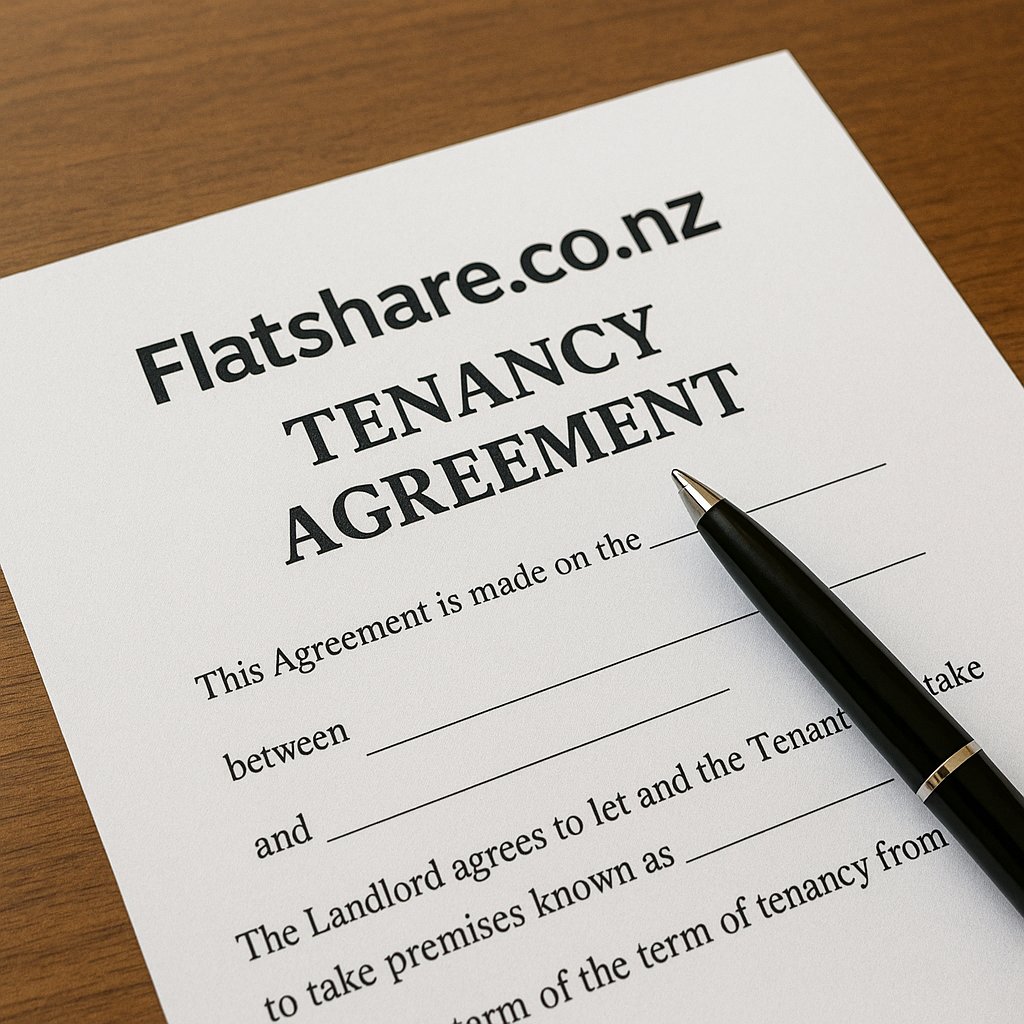

 Click Here to Rent Out Your Room or House!
Click Here to Rent Out Your Room or House!
Disclaimer: This article provides general information only. It is not legal advice. Please consult a licensed attorney for advice specific to your situation.
For real estate investors, landlords, and property managers in New Zealand, navigating the rental market is a significant but rewarding challenge. With the country's dynamic real estate ecosystem, it's not just about acquiring properties but also about safeguarding these investments. This is where landlord insurance emerges as an indispensable safeguard.
In this comprehensive guide, we dive deep into the layers of insurance that define the protection of rental properties in New Zealand. We explore what landlord insurance entails, the specific benefits it offers in this region, and how to find the right policy to suit the unique complexities of the local rental market.
What is Landlord Insurance?
Landlord insurance is a specialized type of property insurance that offers financial protection to those who own and lease residential or commercial buildings. Unlike standard home insurance, which might not cover rental activities, landlord insurance policies are tailored to cover the unique risks faced by property owners who rent out their spaces.
For landlords, there's a peace of mind in knowing that their insurance policy covers a range of hazards, ensuring their property, income, and legal obligations are protected. Whether it's damage caused by tenants, loss of rental income, or public liability claims, landlord insurance steps in to mitigate the financial fallout.
Coverage and Benefits
Landlord insurance in New Zealand typically offers a suite of coverages designed to keep landlords secure in a variety of scenarios. These include:
- Property damage: Protection against a wide range of perils, from fires and floods to vandalism and theft.
- Loss of rental income: Compensation for economic losses due to the property becoming uninhabitable or if tenants default on their payments.
- Liability protection: Cover for legal defense costs and compensation if a tenant or visitor suffers injury on the property.
- Contents insurance: Coverage for the contents provided by the landlord, like furnishings, appliances, and other fixtures, against risks such as theft, damage, and natural disasters.
- Legal expenses: Financial support in the event of disputes related to the rental property, such as eviction or rent arrears.
By having an all-encompassing insurance policy, landlords are not solely looking out for their property but also securing their own financial wellbeing amidst the uncertainty of the rental landscape.
Specific Considerations for Landlords in New Zealand
The New Zealand rental market presents its own set of challenges and opportunities. With an ever-evolving regulatory environment and unique geographical risks, landlords in this country face a range of specific considerations that should influence their insurance decisions.
Foremost among these is the knowledge of local laws and tenancy agreements. New Zealand's Residential Tenancies Act and Healthy Homes Standards Act, for example, impose strict obligations on landlords regarding safety, heating, insulation, and ventilation in rental properties. Failure to meet these standards can lead to penalties and risks, making robust insurance a critical aspect of risk management.
Moreover, the country's geographic location makes it susceptible to natural disasters, with earthquakes, floods, and cyclones posing significant threats to properties. This dynamic necessitates insurance policies that not only cover standard perils but also account for the likelihood of such events.
Factors That Influence the Cost
The cost of landlord insurance isn't arbitrary; it's the result of a complex interplay of factors specific to your property and situation.
Property Location and Type
The location of the rental property is a significant cost influencer. Properties in high-risk areas, such as those prone to natural disasters or with higher crime rates, generally command higher premiums. Similarly, the type of property—whether it's an apartment, a standalone home, or a commercial space—impacts cost due to the differing risks associated with each.
Rental Income and Property Value
Your property's rental income is directly linked to the insurance risk assessments. Landlords with higher rental incomes typically offer properties with more exposure to risk and therefore face higher insurance costs. The property's market value also plays a role; higher property values equate to greater replacement costs and, in turn, bigger premiums.
Tenant History and Occupancy Rate
A history with reliable, long-term tenants can positively influence your insurance costs. Consistent occupancy by low-risk tenants is in stark contrast to a high turnover rate or a problematic tenant history, which can lead to increased premiums or even difficulty in obtaining coverage.
Deductible and Coverage Limits
Choosing a higher deductible lowers your premiums, as you are shouldering more of the financial burden in the event of a claim. Conversely, increasing the coverage limits raises the policy's financial exposure, translating to a higher premium.
Types of Coverage and Pricing
The level of coverage you choose is directly correlated to the premium you pay. Understanding the varying types of coverage available will shed light on their cost implications.
Basic Coverage vs. Comprehensive Coverage
Basic landlord insurance typically includes fundamental protections like property damage and legal liability. Those opting for comprehensive coverage extend that protection to cover a wider array of risks, promising additional peace of mind at a higher cost.
Average Cost Range Based on Coverage Types
The cost of landlord insurance in New Zealand can vary widely, but on average, basic coverage may start at $300-$500 annually, while comprehensive coverages could range from $800-$1500 per year for a standard property.
Tips to Reduce Landlord Insurance Costs
There are several proactive measures you can take to manage and potentially lower your landlord insurance costs without compromising on essential coverages.
Risk Mitigation Strategies
Implementing risk reduction strategies such as conducting thorough tenant screenings, performing regular property inspections, and maintaining a safe living environment can demonstrate to insurers that you are a responsible landlord, possibly leading to better premium rates.
Bundling Insurance Policies
Many insurers offer discounts when you bundle multiple insurance policies, such as landlord, homeowners, and auto insurance, under one provider. Bundling can result in substantial savings on overall insurance costs.
Regularly Reviewing and Updating Coverage
Reassess your insurance needs annually or after significant changes to your property or tenant situation. Adjusting your coverage levels or shopping around for better rates can ensure that you're not overpaying for unnecessary coverage or missing out on essential protections.
Comparing Insurance Providers
Selecting the right insurance provider is as critical as choosing the right coverage. When comparing providers, consider:
Factors to Consider When Choosing an Insurance Provider
Look beyond the premium rates and carefully evaluate the insurer's reputation, customer service, claims handling, and the specific endorsements and supplemental coverages they offer.
Top Insurance Companies in New Zealand
In the New Zealand market, a few prominent insurance companies stand out due to their comprehensive coverage options and customer satisfaction records. AMI Insurance, Tower Insurance, and Initio are among the top picks for landlords seeking reliability and tailored policy options. AMI is known for its comprehensive landlord insurance packages, while Tower offers a range of policies that can be customized according to individual needs. Initio, operating exclusively online, provides a more modern approach with easy policy management. When selecting an insurer, it's essential to compare quotes and read through customer reviews to gauge their service quality and claim response times.
Familiarize yourself with the top insurance companies in New Zealand - who they are, what they specialize in, and what sets them apart. Seek out reviews and ratings to gauge their suitability for your landlord insurance needs.
Conclusion
Investing in landlord insurance is an investment in your property and peace of mind. By understanding the intricacies that define the cost of landlord insurance in New Zealand, you can take purposeful steps to secure the most appropriate coverage at the best possible price. Remember, the right insurance not only acts as a financial safeguard but can also be an invaluable asset in maintaining and enhancing the value of your rental portfolio.

 Click Here to Rent Out Your Room or House!
Click Here to Rent Out Your Room or House!







